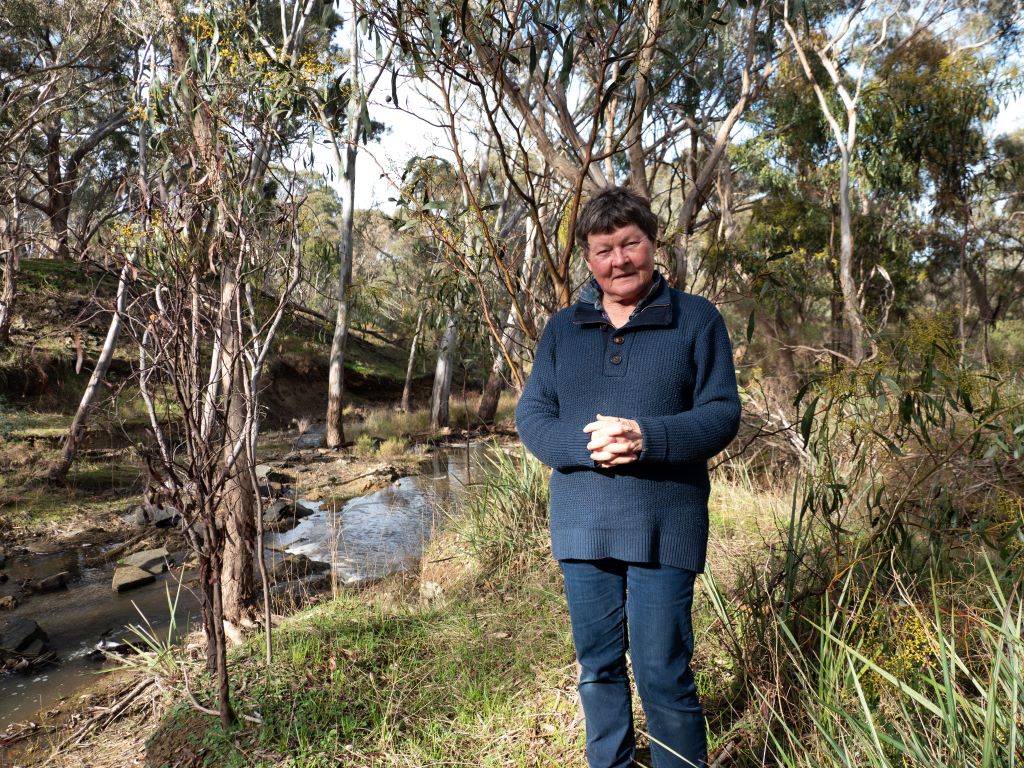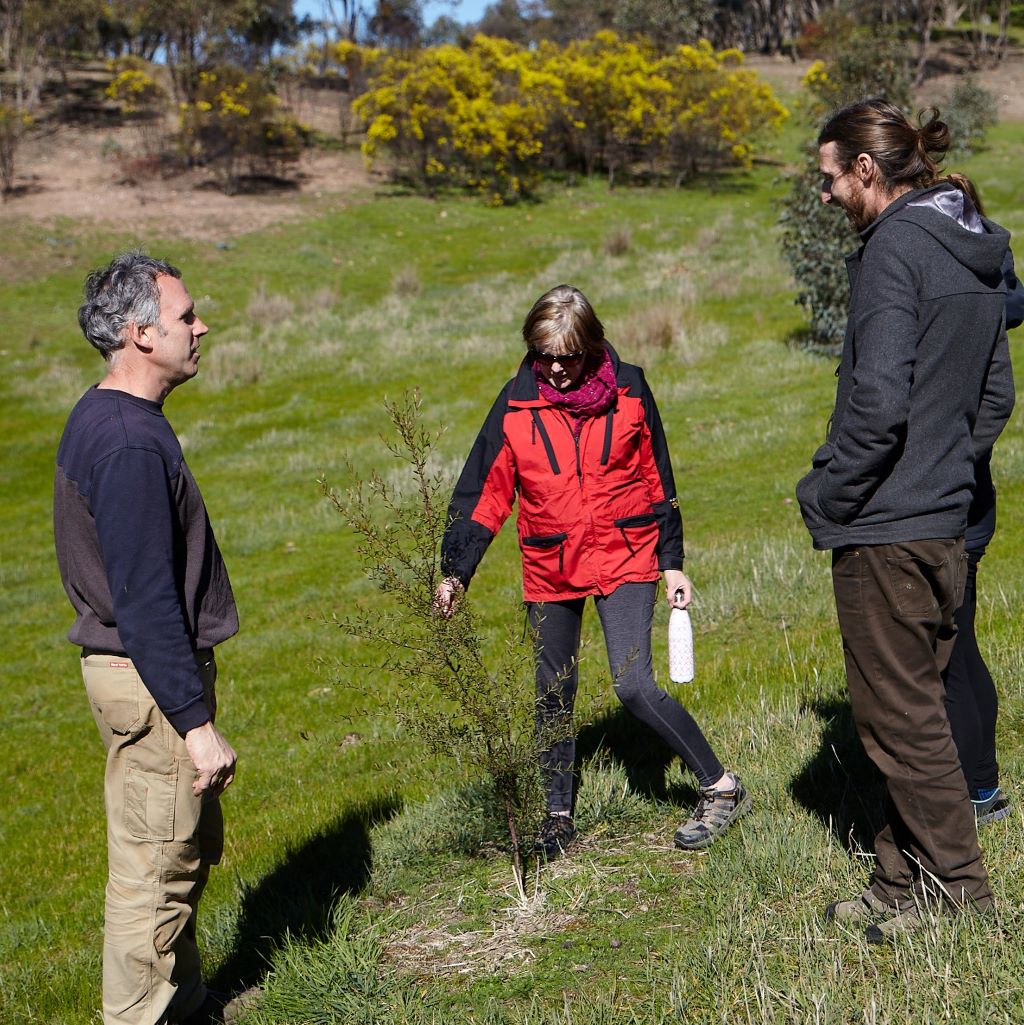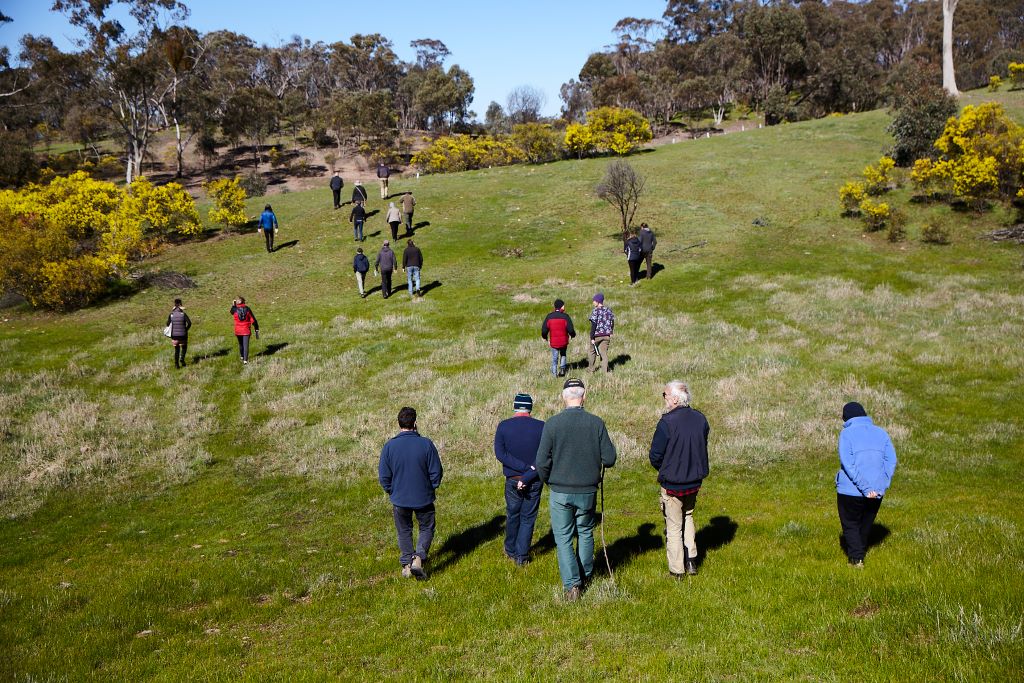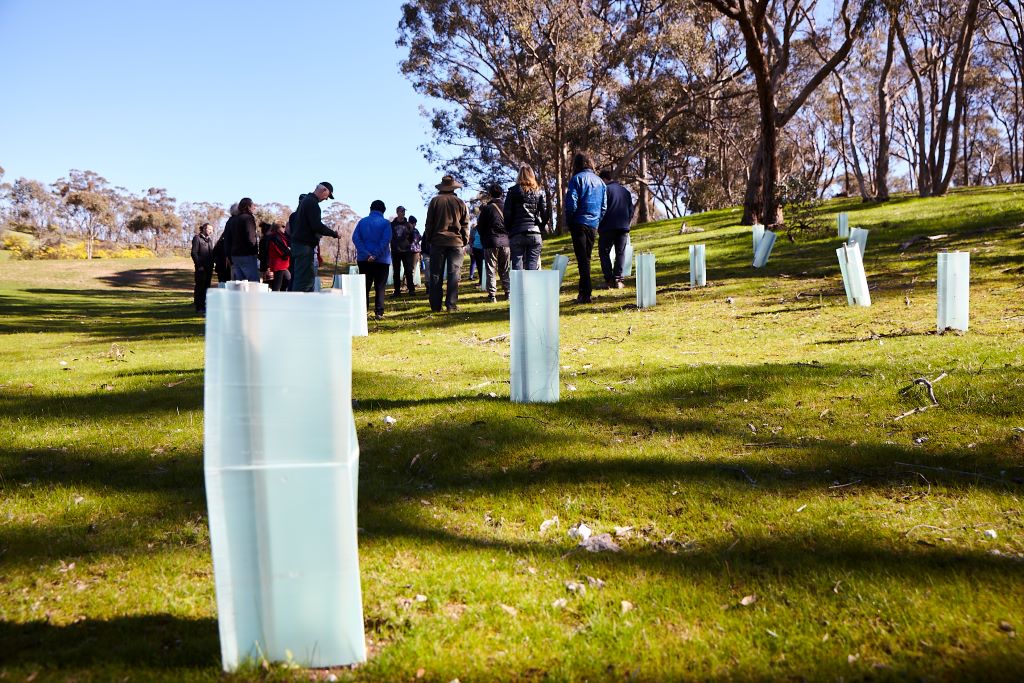‘So many people say to me, why do you do what you do?’ says Marie Jones, one of Connecting Country’s founding members. ‘My first response is because I can. I’m in a position to do it… It’s exciting, you get a buzz out of it.’
In the face of global climate change, biodiversity loss and ecosystem decline, it’s more important than ever to empower action at the local level. While government and corporate policies are crucial pieces in the puzzle, so much of the parkland we enjoy and the habitat our native animals rely on is managed, preserved – and perhaps even owned – by individuals. The precious slices of green space Victorians have treasured through months of lockdowns often exist as a result of a handful of individuals who have come together, taken up the trowel and got to work restoring a small piece of nature – for themselves, their neighbours and as a legacy for subsequent generations.
Connecting Country is a community-led conservation organisation based in the Mount Alexander region of north-central Victoria whose central tenet is to engage the local community in restoring and caring for the land. In doing so, it has achieved impressive conservation outcomes for the region while helping to foster environmental education and stewardship in the region.
‘I get excited about Connecting Country. It’s just so good.’ As a volunteer of over ten years, Marie’s ability to say this with genuine enthusiasm points to something about the organisation that goes some way to explaining its success.

In recognition of its outstanding work, Connecting Country was one of three groups chosen to take part in Remember The Wild’s Community Conservationists program in 2018. The Community Conservationists program aims to tell the stories of the tree planters, the weekend weed warriors, the citizen scientists and other local legends whose work often goes unrecognised.
Along with community engagement, wildlife monitoring, and supporting local Landcare, a large part of the Connecting Country’s work is based on private land restoration: working with landowners to fence off areas on their land that are of high environmental value, and carry out weed and pest control and revegetation work in those areas.
The focus on private land is an acknowledgement that most of the land that makes up our environment is privately owned. While good management of parks and reserves is vital for environmental restoration and preservation, those small pockets alone are not enough to ensure a thriving ecosystem for the future. Through engaging local landowners, there is a dual benefit of preserving more land that would otherwise be inaccessible to conservationists, while also teaching people how to care for the land and spreading a sense of responsibility for the environment. ‘Unless you’re changing community attitudes,’ Marie says, ‘you haven’t done what you’re supposed to be doing.’

In the Mount Alexander region, she says, ‘Actual land use for farming is fairly limited to a few areas. People who move up here do so because of environment and lifestyle, birds and plants.’ It makes sense, therefore, to capitalise on the pre-existing interests of many landowners in having a beautiful and thriving local environment, and equip them with the skills and knowledge to make their own small contribution to their own properties. ‘When we moved up here and learned you couldn’t safely drink the water from the streams, that was a big eye-opener,’ says Marie. It was one of the things that motivated her to start the work she’s been doing for the past decade.
As well as obtaining the advice and practical support they need to carry out this conservation work on their land, property owners also stand to benefit from the results: the increase in visitation by native birds and other animals and the beautification (and corresponding potential value increase) of their property. ‘The environment is everyone’s responsibility, so people should have access to practical support to look after it,’ says Marie.
Inclusion is at the heart of Connecting Country. It’s committee-run, started in 2007 as a project originally funded by what was then the Norman Wettenhall Foundation: a grant-making organisation that specifically recognises the importance of small community-run environmental groups and their unique ability to do impactful work with small amounts of funding. Back then, the Friends of the Box-Ironbark Forests formed a landscape restoration reference group with other passionate locals with useful skills, which over time morphed into Connecting Country in its current form. It started, Marie says, as a prototype to attract funding to do works on private land, ‘but to make sure we got very good value for the money we attracted. There were no overhead costs as you get with government or a board.’

Over the years it has grown to include a handful of part-time staff members and a large network of volunteers and people and organisations with similar interests. ‘I describe it as like a spaghetti bowl,’ says Marie. By this, she means a network of interconnected organisations, groups, agencies and individuals, all loosely interconnected, working or interested in similar areas. Several experts in different areas have been involved with Connecting Country over the years who are also involved in other organisations and projects – such as Geoff Park, who runs the popular Natural Newstead blog about central Victorian birds, Tanya Loos of Seeding Victoria, and Chris Timewell of Birdlife Australia, who have helped to teach locals about the importance of preserving old, large trees for habitat hollows and also contributed to local bird knowledge.
The ‘spaghetti bowl’ is integral to how Marie sees the work she does with Connecting Country – not as one thing on its own, but as part of a web of people and groups all working in different ways towards a common goal. She references this concept multiple times. Sometimes they might intersect, overlap, support each other and draw on each other’s experiences and knowledge. Having Remember The Wild tell their story was another element in this approach. Every different thing you do in every different place, she says, reaches a new group of people. ‘It comes back to the spaghetti bowl.’
After more than a decade, Marie recognises that achieving change is about sticking it out for the long haul. She says the biggest change she’s seen through her time with Connecting Country is that ‘we’re now regarded as part of it by the government’ – a crucial step to getting all parties working together for larger-scale improvement. ‘We’re very conscious of the age range, so you try to do everything you can to get younger people involved.’ But she has no plans to retire from her central role just yet. ‘If I’m still here in another ten years, that will probably be the biggest achievement.’
If you want to learn more about Connecting Country please visit their Website or Facebook.
Banner image is courtesy of Gen Kay.


Leave a Reply